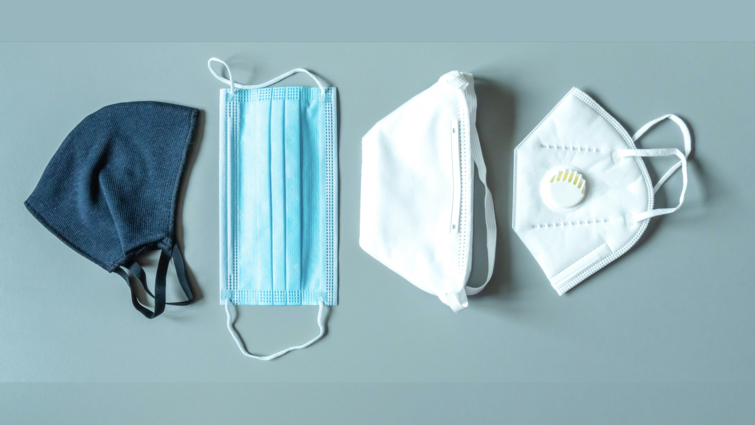Face masks have become inevitable clothing we are using for the past few months. Many people buy face masks for the sake of wearing it and for the rules.
This personal protective equipment not only safeguards you but also the people around you.
But, do you exactly know whether your face mask is safe to wear or not?
Not exactly, right? Then, stick to the end of this article to know the tips on choosing the right face mask for you and your loved ones.
-
Look for the “4Fs”
Clinicians are increasingly suggesting to look for the 4Fs in the personal protective equipment, i.e. the face masks you are using.
What are these 4Fs? Filtration, Fluid resistance, Features and Fit.
- Filtration: The face mask must have N95 quality filtration to protect yourself from smoke or any viruses.
- Fluid Resistance: A level 3 fluid resistance mask gives you the best protection when you encounter blood or any bodily fluid splatter.
- Features: The personal protective equipment must have loops or ties to secure the mask behind the ear lobes. Preferably, an anti-fog film to reduce the distractions due to fogging issues.
- Fit: The face mask must cover the nose and mouth completely. It should seal the gap around the face to prevent inhalation exposure.
When you choose a face mask that qualifies the 4Fs, you are completely safe from the exposure from the coronavirus or rising air pollution. These face masks that are made in the USA can definitely provide the protection you need.

-
The ASTM
ASTM is a global organization that frames and publishes the standardization procedures for products, services, materials and systems.
As per ASTM guidelines, selecting the right mask is a 1-2-3 level process.
The mask with F2100-11 tested material has five performance metrics, and this is how they have characterized the face masks.
Level 1 face masks have a low risk for fluid exposure, while level 2 are made of soft linen and have anti-glare wrap around the eyes to facilitate moderate risk to fluid exposure.
Level 3 comprises both face mask and face shield that are usually suggested for doctors and medical professionals exposed to the virus daily.
Depending on the safety level you need and your surroundings, you can choose your personal protective equipment.
-
Comfort and Safety
Of course, face masks are primarily manufactured with the intent to provide you safety, while somehow keeping your comfort at stake.
However, you can get both comfort and safety if you pay attention to choosing the right personal protective equipment.
Many people are thinking wearing a face shield would cut down the exposure to viruses.
While you wear only a face shield, you have the vicinity exposure which you cannot avoid.
If you are occasionally going out, you can prefer to use only reusable face masks.

-
N95 or Homemade masks?
N95 are respirators that prevent the risk of exposure to the finest airborne particles and gases. NIOSH-approved N95 respirators are commonly used to filter 95 per cent of the airborne particles.
The N95 mask has attained fame since the Covid-19 pandemic and people started to think only an N95 mask can protect them from the virus.
This is partially true, but you don’t have to use only an N95 mask, which is preferred mandatorily for the medical professionals.
If you’re not going out frequently, you can still prefer to use the tight weave cloth masks that are reusable as well as budget-friendly.
Such masks’ 3-dimensional structure protects you better than synthetic ones as it has multiple roadblocks to stop the micron-size particles from entering.
Which one should I choose?
The mask you are going to choose must be based on your needs. If you’re in a risk virus exposure locality, a surgical mask can be a better choice. If you want to prevent the spread, then you can use tight weave cloth masks.






